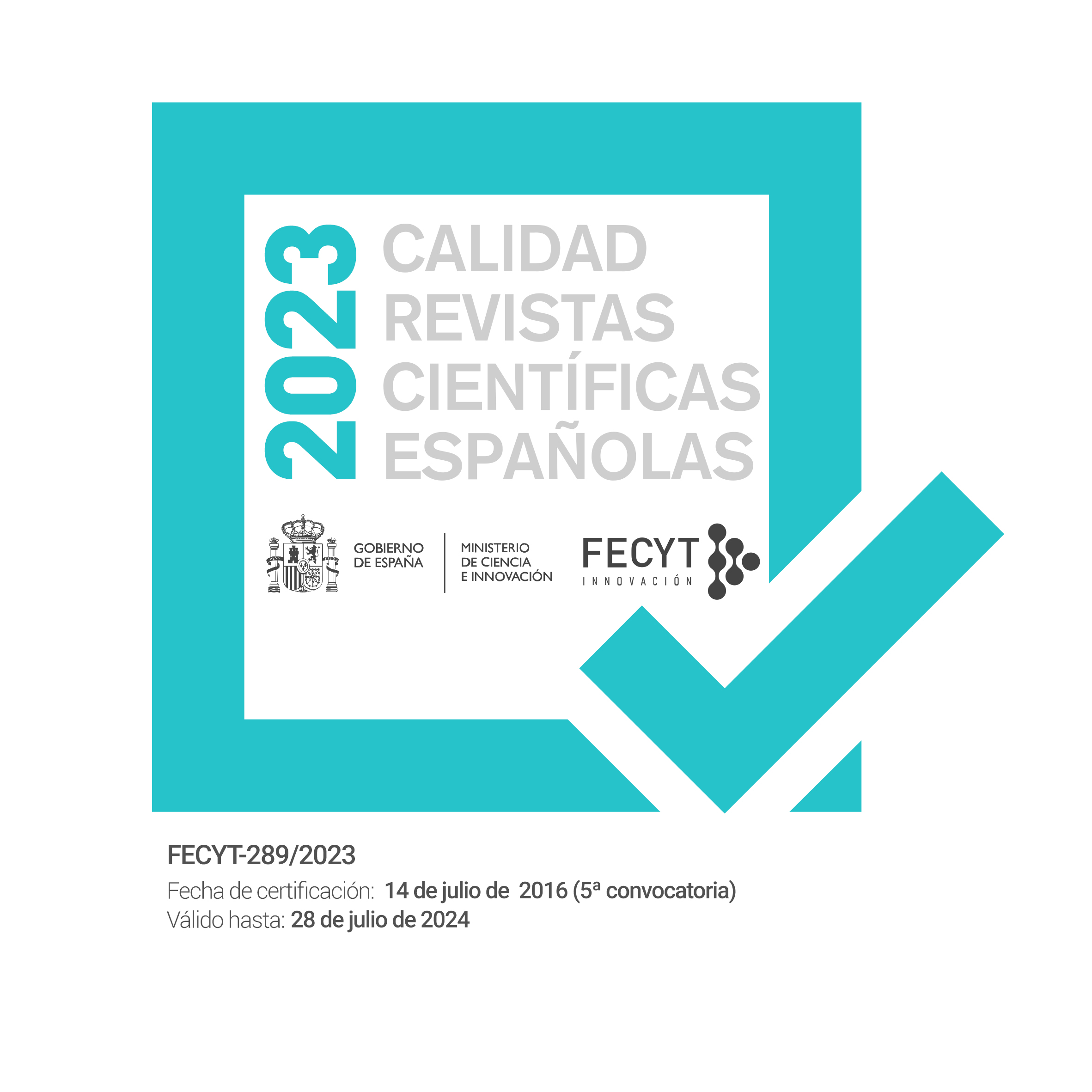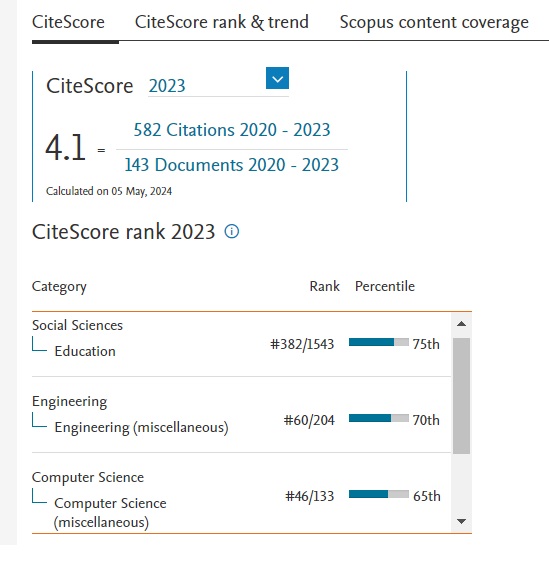Visiones de espacios de trabajo tridimensionales o virtuales, metaversos, y educación. Realidad virtual y aprendizaje
Presentación del número especial y conclusiones
Resumen
Cuando se convocó, la idea de este número era dar espacio a contribuciones que esencialmente incluyesen alguna investigación empírica, o el desarrollo de tecnologías, como la realidad virtual inclusiva, analizando su influencia en el aprendizaje, o en su mejora. Pensábamos en metaverso, con la tecnología que se nos presenta o con las hipotéticas nuevas plataformas que fuesen surgiendo. La perspectiva era la de mejorar y ampliar posibilidades pedagógicas en aspectos concretos, donde era más difícil obtener mejora, como son las que ofrecen los sistemas simbólicos tradicionales. Cuyas ventajas son obvias y depuradas por la tradición y la cultura: las relacionadas con el aprendizaje y adquisición de la lectura y de la escritura, el aprendizaje y adquisición de habilidades para producir códigos informáticos (pensamiento computacional) y, por último, las relacionadas con el aprendizaje y la adquisición de la escritura simbólica matemática.
Analizamos sucintamente los problemas y vicisitudes para superar la novedad del planteamiento y posibles dudas sobre la validez de la convocatoria.
Se puede decir que, si bien el monográfico ha conseguido reunir diez trabajos de calidad suficiente, la mayor parte de los objetivos planteados no han sido conseguidos.
De los trabajos publicados, cuatro son exclusivamente sobre metaverso. Uno muy interesante que nos da idea, tras unas condiciones que garantizan su fiabilidad, acerca del estado de lo que se hace con metaverso en la práctica de aula en las fases de diseño e implementación.
Por último, ha habido un aspecto donde el objetivo no ha sido en absoluto conseguido, y eso podría hacernos reflexionar sobre algunas propuestas que en el plano de las especulaciones sobre metaverso se han hecho. No ha habido ninguna aportación, ni entre las contribuciones aceptadas ni entre las numerosas que se han rechazado, de metaverso como un nuevo código capar de soportar la comunicación y la representación del pensamiento y de las ideas similar a como lo hacen los códigos claves, base de la comunicación y del aprendizaje: La escritura alfabética, la escritura a través de códigos numéricos y la de códigos de programas, el pensamiento computacional.
Descargas
Citas
López-Belmonte, J., Pozo-Sánchez, S., Moreno-Guerrero, A.J., & Lampropoulos, G. (2023). Metaverse in Education: a systematic review. RED. Revista de Educación a Distancia, 23(73). http://dx.doi.org/10.6018/red.511421
Karlsson, J. (2008). Taking Care of Xerox Business—Virtually. Research-Technology Management, 51(1), 15-18. https://www.tandfonline.com/doi/abs/10.1080/08956308.2008.11657479
Lee, E. A. L., Wong, K. W., & Fung, C. C. (2010). How does desktop virtual reality enhance learning outcomes? A structural equation modeling approach. Computers & Education, 55(4), 1424-1442.
López-Belmonte, J., Pozo-Sánchez, S., Moreno-Guerrero, A.J., & Lampropoulos, G.(2023). Metaverse in Education: a systematic review. RED. Revista de Educación a Distancia, 23(73). http://dx.doi.org/10.6018/red.511421
López Solórzano, J.G. y Ángel Rueda,C.J.(2023). Revisión sistemática de los entornos digitales inmersivos tridimensionales en la enseñanza de la programación. RED. Revista de Educación a Distancia, 23(73). http://dx.doi.org/10.6018/red.540731
Lorenzo, G.,Lorenzo-Lledó, A., Lledó, A., &Pérez-Vázquez, A.(2023). Creación de un entorno de realidad virtual inmersiva para la comunicación e interacción social: estudio piloto en alumnado con trastorno del espectro autista. RED. Revista de Educación a Distancia, 23(73).http://dx.doi.org/10.6018/red.539141
Merrill, M. D. (2007). First principles of instruction: A synthesis. In R. A. Reiser & J. V. Dempsey (Eds.), Trends and issues in instructional design and technology (2nd ed., pp. 62-71). Upper Saddle River, NJ: Merrill/Prentice-Hall.
Merrill, M. D. (2009). First principles of instruction. In C. M. Reigeluth & A. A. CarrChellman (Eds.), Instructional-design theories and models: Building a common knowledge base (Vol. III, pp. 41-56). New York: Routledge.
Moreira Teixeira, A. y Zapata-Ros, M. (2021). Introducción / presentación al número especial de RED “Transición de la educación convencional a la educación y al aprendizaje en línea, como consecuencia del COVID19”. Revista Educación a Distancia (RED), 21(65). https://doi.org/10.6018/red.462271
Newton, C. (June 2021) MARK IN THE METAVERSE. The Verge. https://www.theverge.com/22588022/mark-zuckerberg-facebook-ceo-metaverse-interview
Onrubia, J. (2005). Aprender y enseñar en entornos virtuales: actividad conjunta, ayuda pedagógica y construcción del conocimiento. Revista de Educación a distancia (RED).
Pérez-Paredes, P., & Zapata-Ros, M. (2018). El pensamiento computacional como alfabetización de la cultura digital. RED. Revista de Educación a Distancia. Núm. 58 DOI: http://dx.doi.org/10.6018/red/58/0 https://www.um.es/ead/red/58/Presentacion_pensamiento_computacional.pdf
Reigeluth, C. M. (2012). Instructional theory and technology for the new paradigm of education. RED. Revista de Educación a distancia.
Rodríguez-García, A.-M., Moreno-Guerrero, A.-J., & López-Belmonte, J. (2020). Nomophobia: An Individual’s Growing Fear of Being without a Smartphone—A Systematic Literature Review. International Journal of Environmental Research and Public Health, 17(2), 1-19. https://doi.org/10.3390/ijerph17020580
Stephenson, N. (1992). Snow Crash. Penguin.
Valdés Godínes, J. C., & Ángel Rueda, C. J. (2023). El trabajo colaborativo en los EDIT, explorando el aprendizaje inmersivo en el metaverso. RED. Revista de Educación a Distancia, 23(73). http://dx.doi.org/10.6018/red.539671
Zapata-Ros, M. (2015). Pensamiento computacional: Una nueva alfabetización digital. Revista de Educación a Distancia (RED), (46). Recuperado a partir de https://revistas.um.es/red/article/view/240321
Derechos de autor 2023 Revista de Educación a Distancia (RED)

Esta obra está bajo una licencia internacional Creative Commons Atribución-NoComercial 4.0.
Las obras que se publican en esta revista están sujetas a los siguientes términos:
1. El Servicio de Publicaciones de la Universidad de Murcia (la editorial) conserva los derechos patrimoniales (copyright) de las obras publicadas, y favorece y permite la reutilización de las mismas bajo la licencia de uso indicada en el punto 2.
2. Las obras se publican en la edición electrónica de la revista bajo una licencia Creative Commons Reconocimiento-NoComercial-SinObraDerivada 3.0 España (texto legal). Se pueden copiar, usar, difundir, transmitir y exponer públicamente, siempre que: i) se cite la autoría y la fuente original de su publicación (revista, editorial y URL de la obra); ii) no se usen para fines comerciales; iii) se mencione la existencia y especificaciones de esta licencia de uso.
3. Condiciones de auto-archivo. Se permite y se anima a los autores a difundir electrónicamente las versiones pre-print (versión antes de ser evaluada) y/o post-print (versión evaluada y aceptada para su publicación) de sus obras antes de su publicación, ya que favorece su circulación y difusión más temprana y con ello un posible aumento en su citación y alcance entre la comunidad académica. Color RoMEO: verde.














